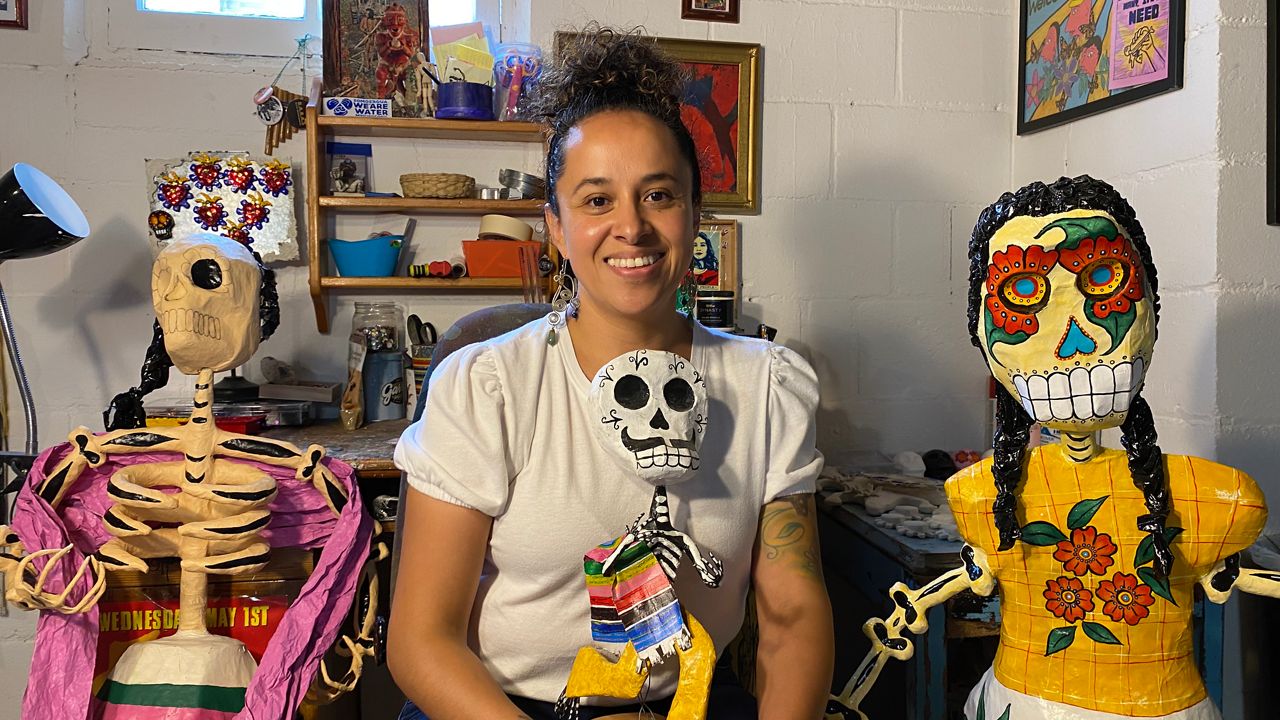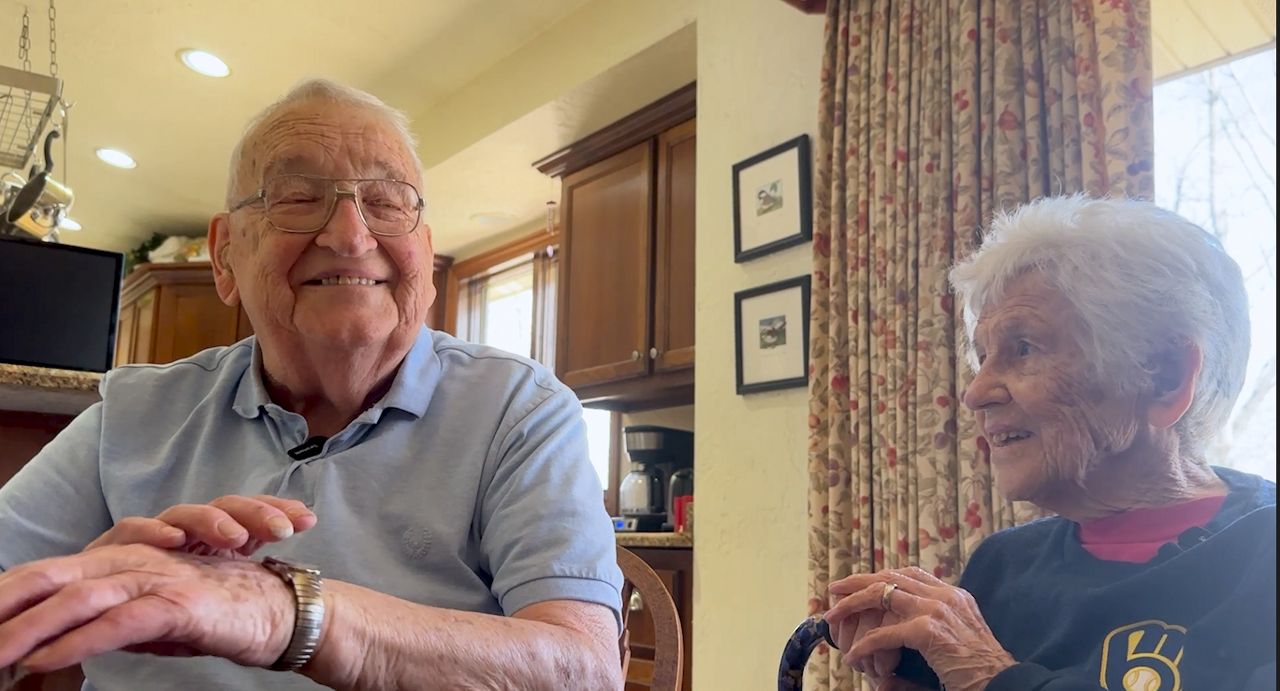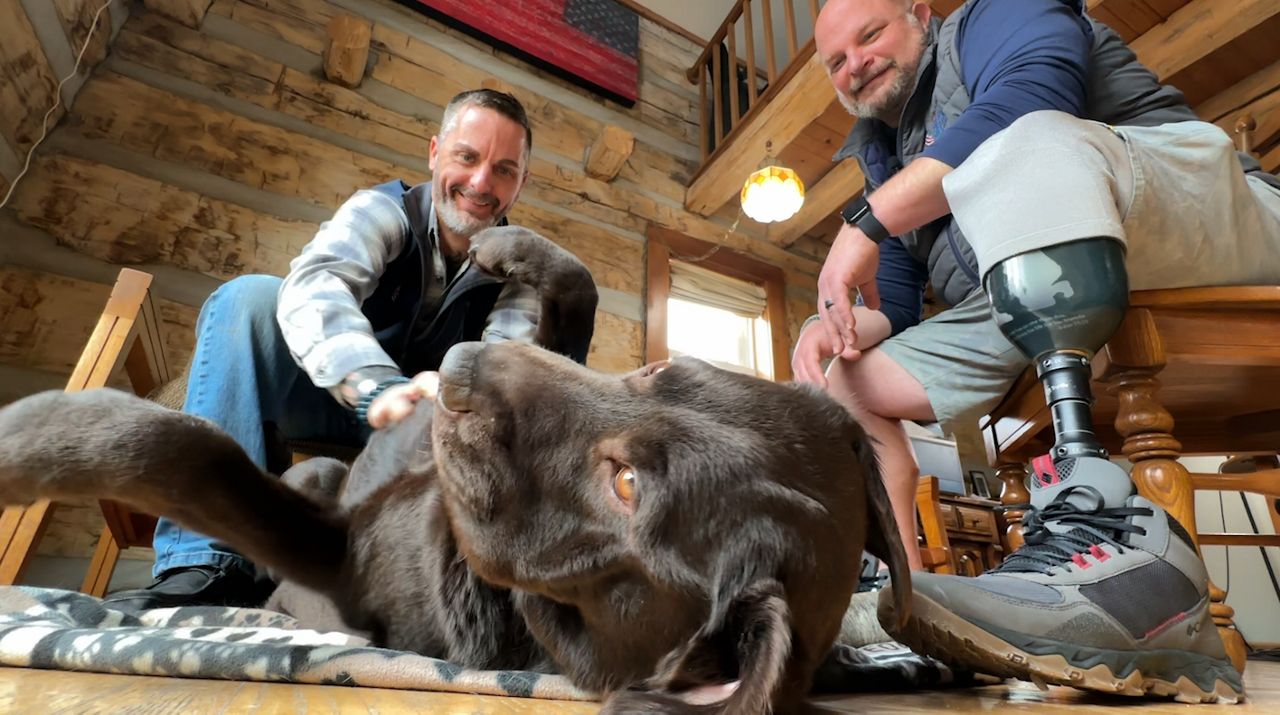MILWAUKEE — As the sun baked the pavement at the Silver City International Festival, Yolanda Enriquez was busy crafting a doll-sized piñata with aluminum foil and newspaper.
Paper mache is something Enriquez said she hadn’t touched for eight years, but she decided to give it a try at local artist Ceci Tejeda’s festival booth. She said she hoped to bring the activity back to her students at Milwaukee Public Schools, where she works.
“I just think it’s beautiful. This is something different because in my country, we don’t do something like this,” said Enriquez, who is from Colombia.
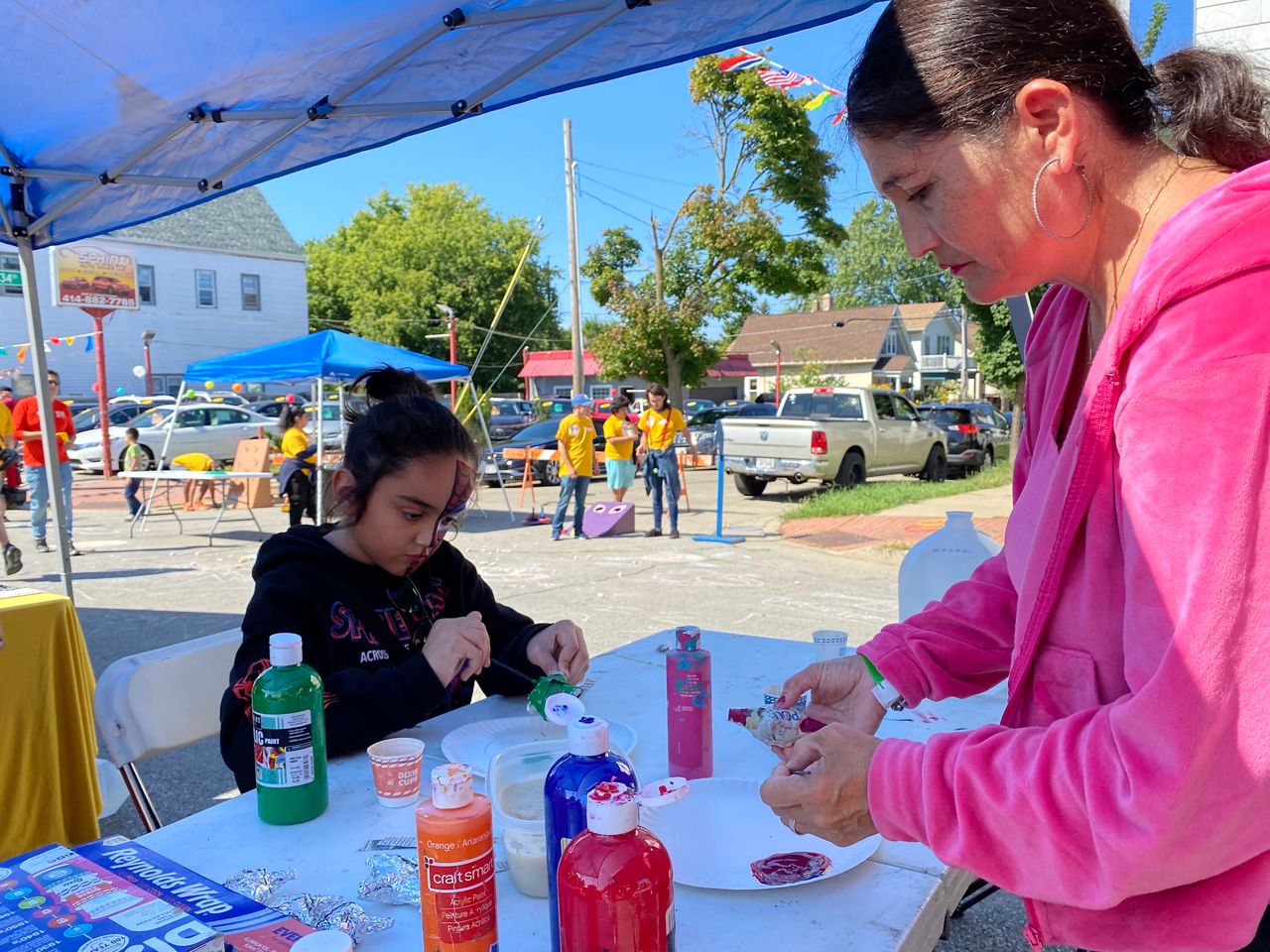
The paper mache art form comes from Mexico. There, it’s known as “cartonería,” which means cardboard.
It’s a style of art Tejeda said she knows well. She’s been making paper mache creations for more than a decade.
But to her, it’s more than just art. It’s an extension of her identity and culture, a beacon for future generations and a way for her to make a difference in the community.
Finding a home in the U.S.
Tejeda started making art at age 15 while living in Mexico. At the time, she did paper mache for fun.
One of her first pieces was an alebrije, a mystical creature made from different parts of an animal, such as a dog with wings.
Her brother, who is an artist, inspired her to keep going with the art.
“I remember him telling me to never stop doing it,” Tejeda said.
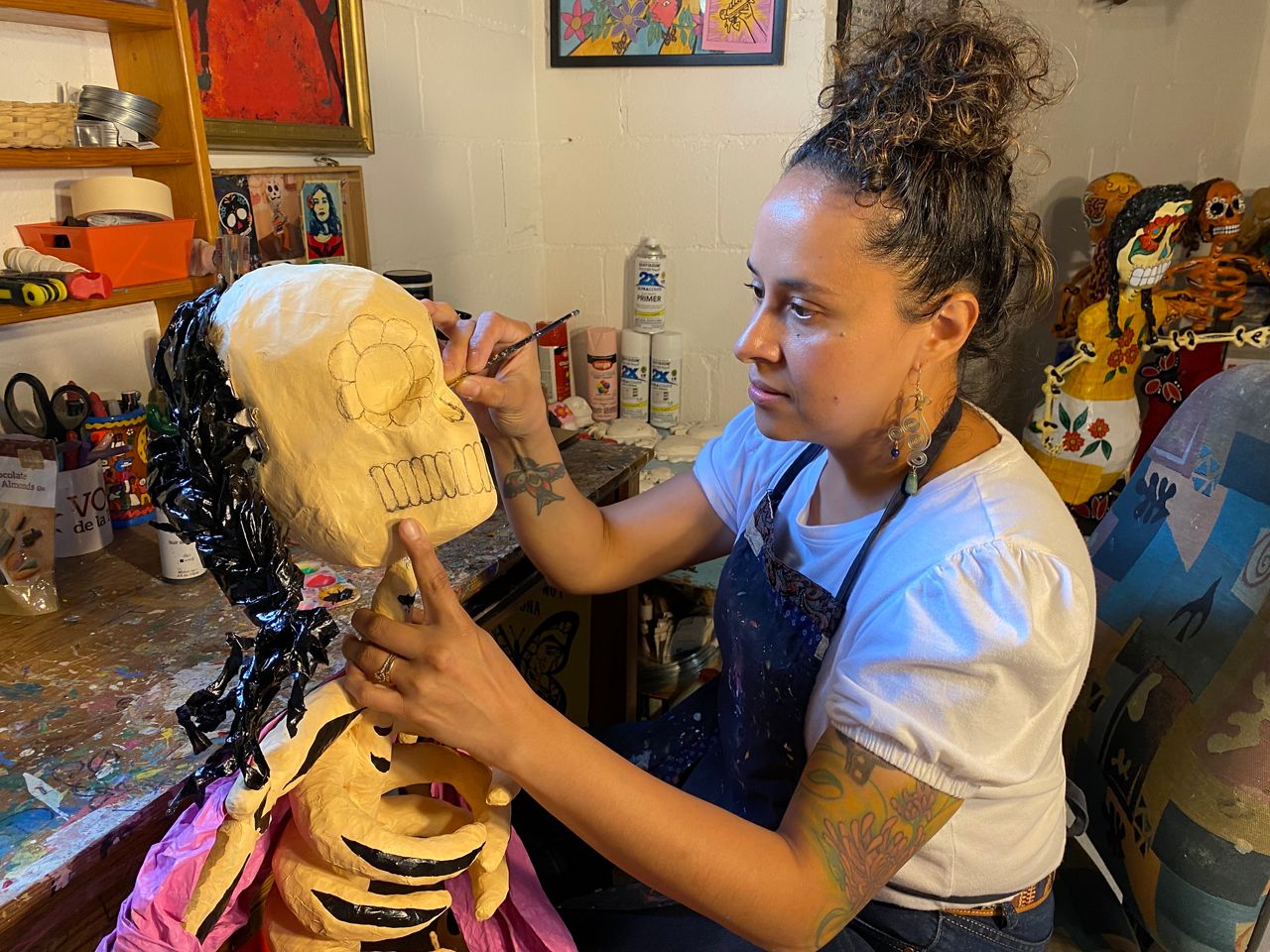
So when she made her way to the United States, she did just that. But the art she was doing for fun slowly transformed into a way for her to feel close to her family — who were now hundreds of miles away.
“I have my whole family in Mexico, so it’s kind of hard,” Tejeda said.“I have my whole family in Mexico, so it’s kind of hard,” Tejeda said.
“You don’t know the language, you don’t know how to go here and over there, so it was hard,” she said about adjusting to life in Milwaukee.
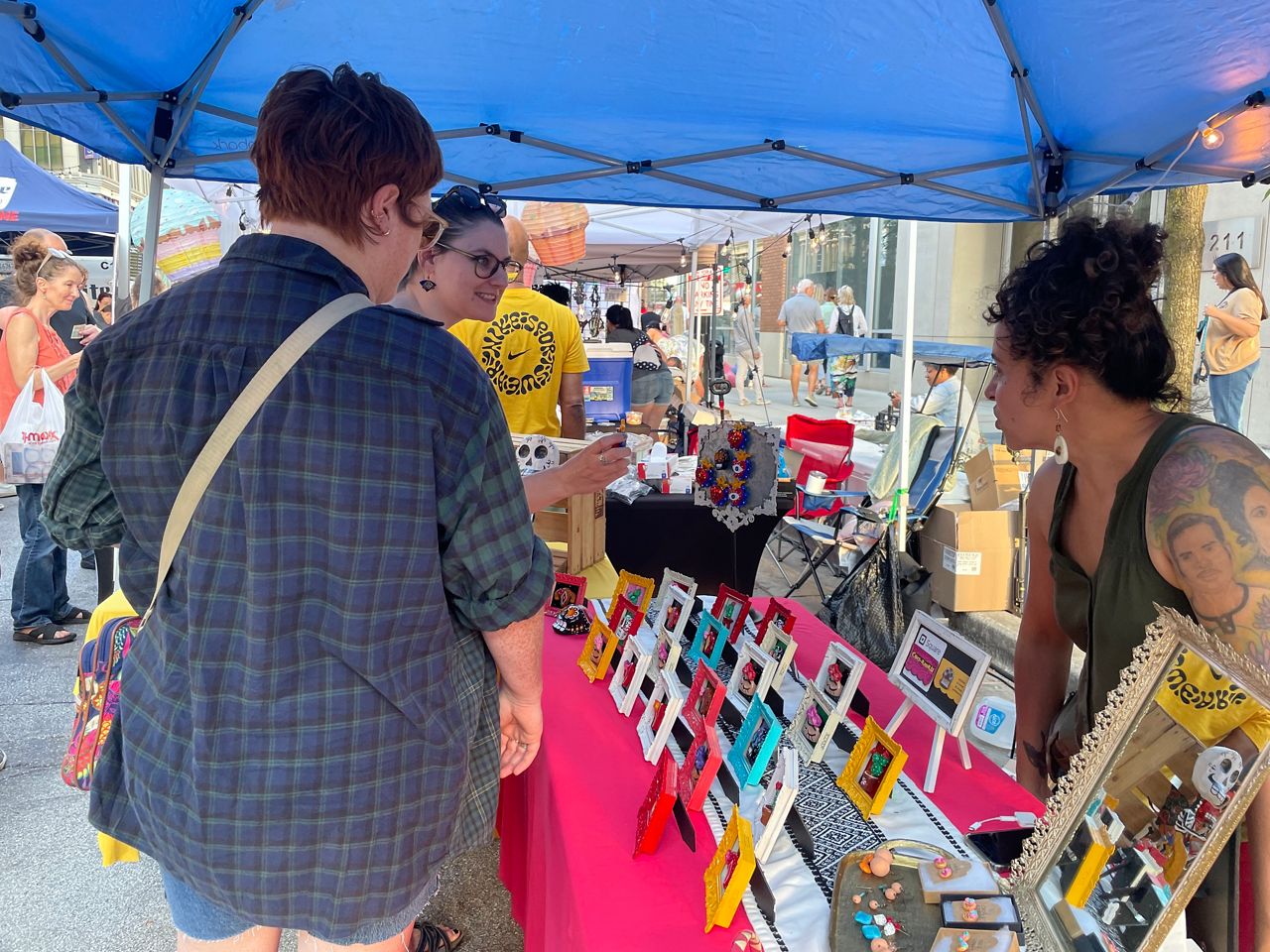
Sharing her culture through art became Tejeda’s salvation. She said it helped her make connections with others in the community, which made her feel less alone and more welcome.
“[Creating art] makes us (people in her community) feel like part of the city, part of any city where we are — and makes us feel like one,” said Tejeda.
Although that art sometimes focuses on specific Mexican holidays, such as Day of the Dead, she said most people outside of the culture can relate.
“They feel that connection even if they’re not from Mexico,” she said.
Driving social change
Much of Tejeda’s art has a deeper meaning, whether it’s simply a reflection on her childhood or creating awareness for a social movement.
She said she once made a uterus, which she created to show support for the women’s rights movement. During that time, she was thinking about the women immigrants who cross the border and are often abused on the journey.
It’s not the first time Tejeda has used her art for a social cause. It’s something that’s threaded through a large portion of her work.
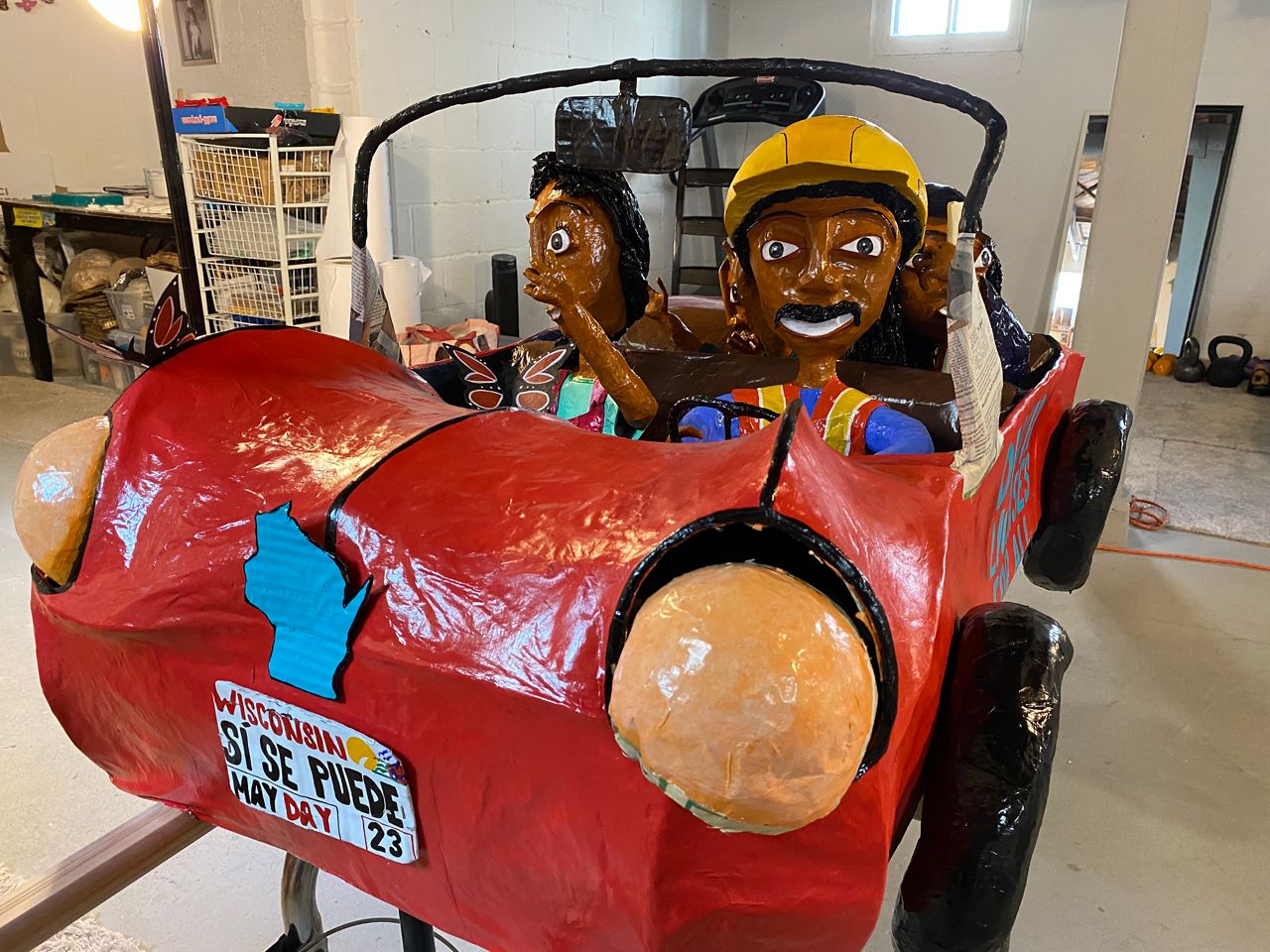
Throughout the years, Tejeda has worked with Voces de La Frontera to make banners and paper mache pieces to support immigrants’ and workers’ rights. The newest one she made was a car with an immigrant family.
“As an artist, I believe that art is a powerful tool to send a strong message. I feel that it is my way of expressing myself,” said Tejeda.
She said using her art for social causes is something she is passionate about. She said she works with Voces because she feels like they are a part of her.
"This makes me feel close to my roots."“I feel the struggle of the immigrant community and the hard work that as an immigrant, we have to do. I like to be close to my people, culture and traditions," she said. "This makes me feel close to my roots."
To advocate for that community, she’ll go beyond her art.
As an art fellow for the Milwaukee Water Commons — a group focused on social and environmental justice — she’s learning more about water issues, such as lead in drinking water.
Tejeda said she was drawn to the organization because she wanted to learn more about how to take care of water, especially for her community.
“As an immigrant, I can transmit the knowledge to my community and in general,” she said.
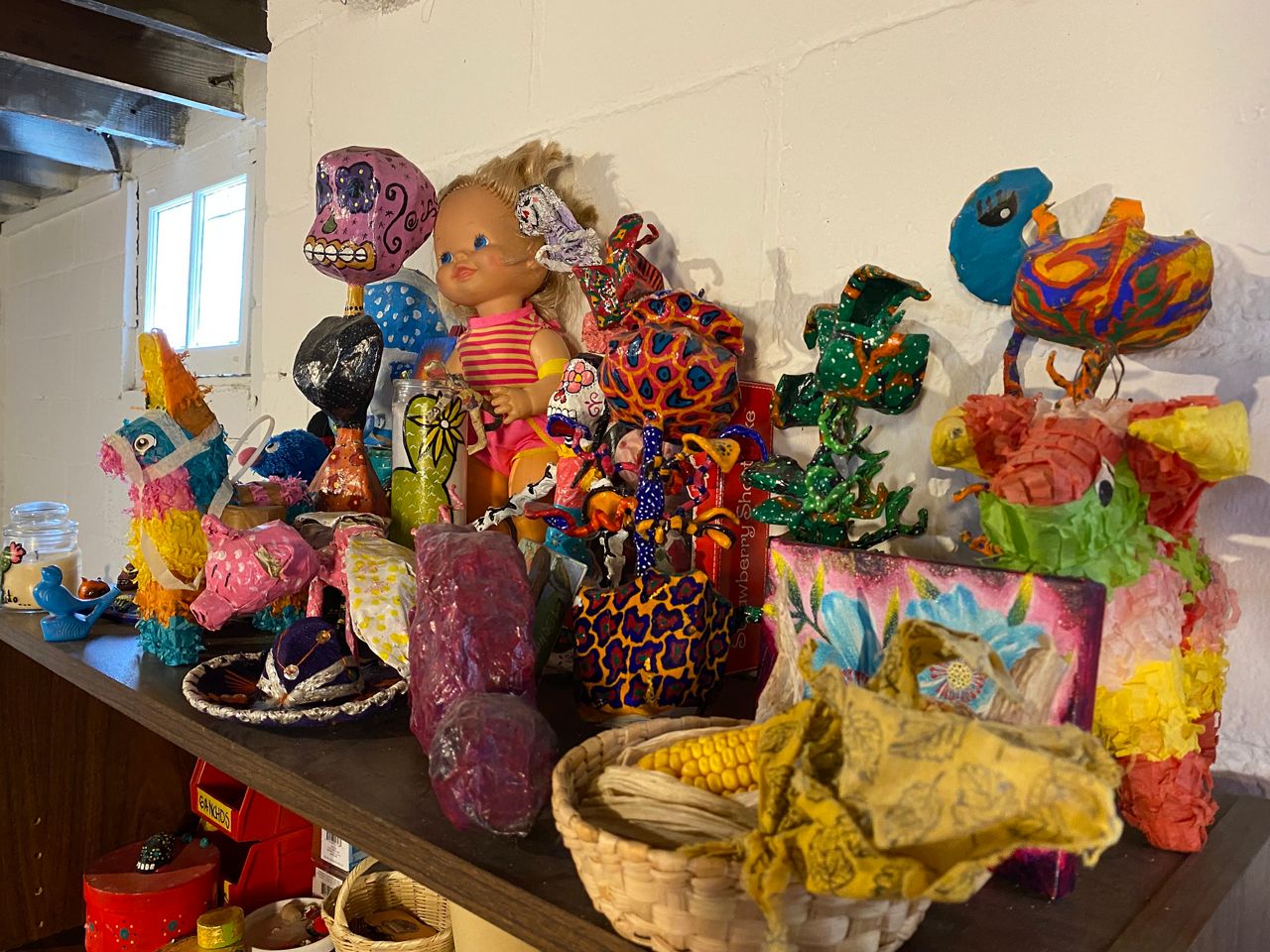
That knowledge will go into an art project completed in collaboration with a community group at the end of the program, according to Milwaukee Water Commons creative arts manager Melanie Ariens.
“She (Tejeda) has the power or potential to influence her community about caring about water through her art and just through the knowledge that she acquires through this,” Ariens said.
Ariens said Tejeda has really taken initiative with the program and has even attended optional events.
“She’s really been all in and enthusiastic about it,” Ariens said. “She’s very dedicated to her craft, and she’s talented, strong work, cares about water.”
Carrying on tradition, culture
When she’s not working on her own pieces or advocating for social causes, Tejeda is teaching others how to make their own paper mache.
She’s collaborated with numerous organizations in the community to do so.
Art educator Claudia Orjuela said Tejeda has been a big part of their reading and art programs at Lynden Sculpture Garden. The organization focuses heavily on highlighting refugee and immigrant authors.
Orjuela said Tejeda recently read the book “Senorita Mariposa” in Spanish and English and then led an art activity where kids made butterflies with fully functioning wings. Tejeda talked about monarchs and their migration — what it’s like to move from one place to another and all that it implies.
It’s just one instance of Tejeda sharing her culture with younger generations.
Early in the summer, Tejeda also hosted a camp with Walker’s Point Center for the Arts looking at the Aztec culture. She and the workshop participants used paper mache to make symbols and the god of the moon and sun.
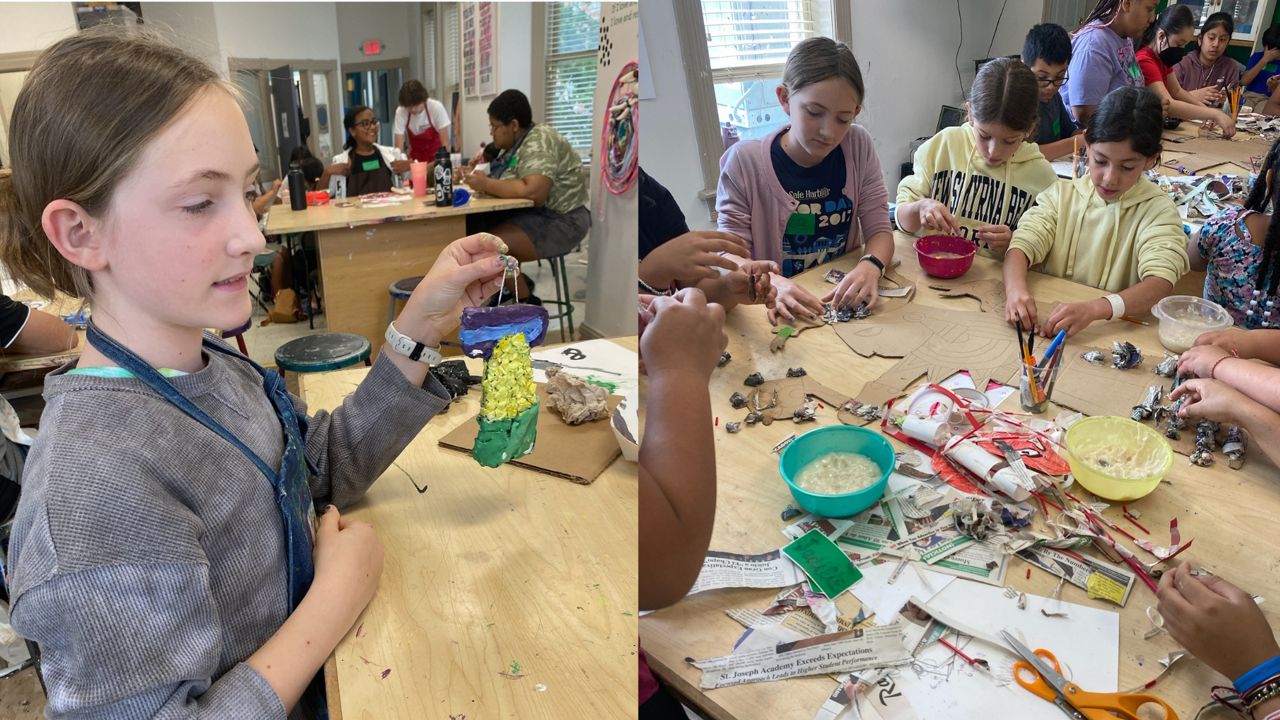
“It’s all about cultural awareness. So in learning about your roots, learning about your heritage, looking at these calendars and what they mean,” said Orjuela. “Ceci’s role is bringing Latin American people and non-Latin American people together to bring awareness to our cultural roots and for the people who are non-Latin American, so they are aware of other cultures. And learn about it not only from an intellectual standpoint, but learn about it through the arts.”
Tejeda couldn’t agree more. She said hosting workshops allows her to keep the tradition of paper mache alive and well.
“I want this tradition still alive. It’s really old and I know if you go to Mexico you’re going to see a lot of people doing it,” Tejeda said.
She said it’s especially important to keep the tradition alive in a place like Milwaukee.
“We’re really far away from Mexico,” said Tejeda.
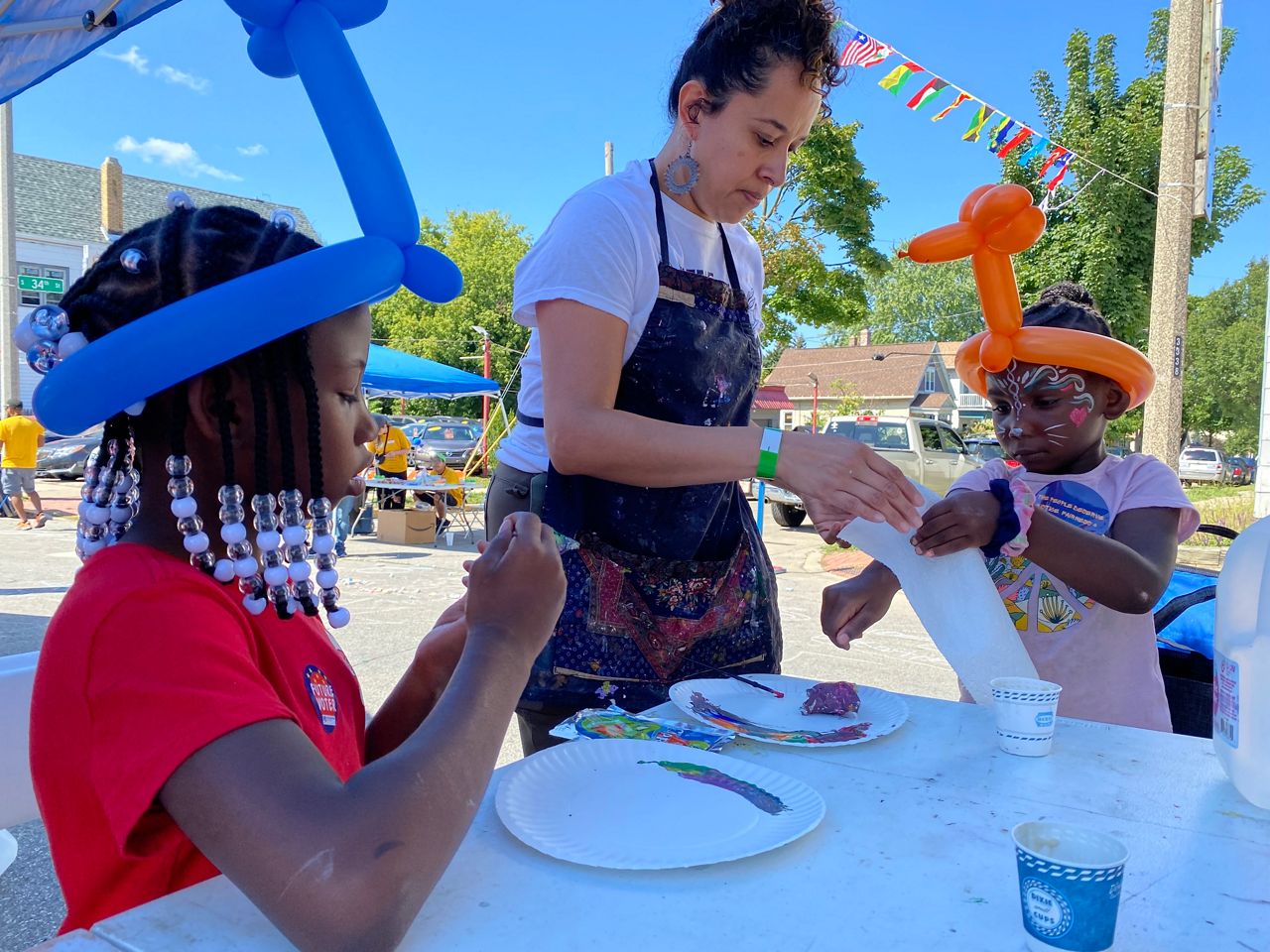
She said the new generations may have grown up here, but their parents might not have.
“It’s something good for them to learn because it’s still a part of them,” said Tejeda, who also has two daughters.
Orjuela said Tejeda is a person who stands out in the way she relates to others in the community through her teaching.
“Having someone like Ceci, an artist that is very aware of their own culture and their own heritage, that helps you feel a sense of belonging and of rootedness and embracing that by making things, by creating something beautiful and that you can feel proud of. That can be huge for students in a school that you often feel very lost,” said Orjuela.
“It (Tejeda’s work) helps students that feel kind of like disconnected from their culture in the classroom bring that back to their attention,” she added.





